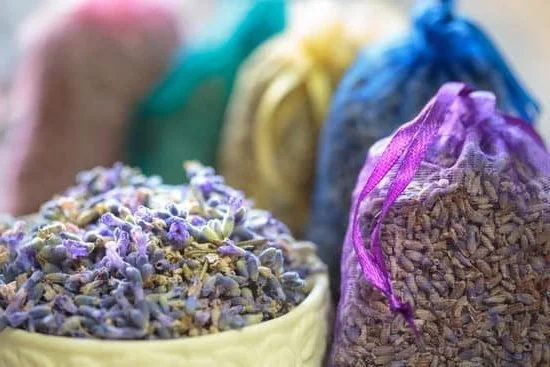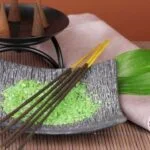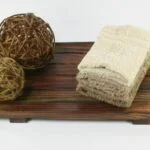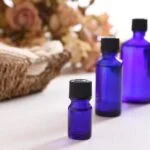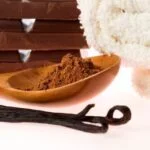Aromatherapy has long been praised for its therapeutic benefits, offering relief from stress, enhancing relaxation, and promoting overall well-being. On the other hand, humidifiers are renowned for their ability to add moisture to dry indoor air, alleviating respiratory issues and creating a more comfortable living environment. But can these two practices be combined?
In this article, we will delve into the fascinating world of aromatherapy and humidifiers. We will explore the benefits of using these devices individually and examine whether it is possible to harness the advantages of both by incorporating aromatherapy oils into a humidifier.
Firstly, let’s define aromatherapy. Aromatherapy is a holistic healing practice that utilizes essential oils extracted from plants to promote physical and emotional well-being. These concentrated oils can be inhaled or applied topically to stimulate various responses in the body and mind. We will also discuss how humidifiers work by adding moisture to the air, which can be particularly beneficial during dry seasons or in homes with low humidity levels.
By combining aromatherapy with a humidifier, you may potentially enhance your experience with both practices while enjoying several benefits simultaneously. Throughout this article, we will explore whether introducing aromatherapy oils affects the functionality of a humidifier and shed light on essential oils that are safe and suitable for use in a humidifying device.
So let’s dive into the world of aromatherapy-infused humidifiers and discover how they can transform your home environment into an oasis of relaxation, wellness, and fragrant ambiance.
How Aromatherapy Oils Can Enhance Your Humidifier Experience
Exploring the possibility of combining aromatherapy with a humidifier
Many people enjoy the benefits of both aromatherapy and humidifiers, so it’s natural to wonder if these two can be combined for an even more enhanced experience. The good news is that using aromatherapy oils in a humidifier is indeed possible and can provide a multitude of benefits. Aromatherapy oils can add fragrance to the mist produced by the humidifier, creating a soothing and relaxing atmosphere in your home.
Benefits of using aromatherapy oils in a humidifier
Combining aromatherapy with a humidifier offers several advantages. Firstly, it allows you to enjoy the therapeutic properties of essential oils while simultaneously benefiting from the moisture released into the air by the humidifier. This dual combination can create a more holistic approach to wellness and promote overall well-being.
Additionally, using aromatherapy oils in a humidifier can help improve respiratory health. Certain essential oils have antimicrobial properties that can help purify the air and reduce airborne pathogens. This can be particularly beneficial for individuals with allergies or respiratory conditions such as asthma.
Furthermore, incorporating aromatherapy oils into your humidifier can enhance relaxation and promote better sleep. Scents like lavender, chamomile, or ylang-ylang are known for their calming properties and can help relieve stress and anxiety. By filling your bedroom with these soothing fragrances, you create an environment conducive to restful sleep.
Does it affect the functionality of the humidifier?
One common concern when using aromatherapy oils in a humidifier is whether it affects the functionality or performance of the device. Generally, adding essential oils to a humidifier does not interfere with its purpose of releasing moisture into the air. However, it is crucial to note that not all types of humidifiers are suitable for use with essential oils.
Ultrasonic humidifiers and evaporative humidifiers are the most compatible with aromatherapy oils. These types of humidifiers utilize either a vibrating diaphragm or a wick to disperse the moisture, making it safe to add essential oils to their reservoir or filter.
On the other hand, steam vaporizers or warm mist humidifiers are not recommended for use with essential oils. The heat produced by these devices can alter the chemical composition of the oils and may even pose a risk of combustion.
Before using aromatherapy oils in your humidifier, always consult the manufacturer’s instructions and guidelines. Additionally, it is advisable to start with a small amount of oil and gradually increase if desired to prevent overwhelming fragrances or clogging the device.
Aromatherapy Oils Suitable for Humidifiers
When considering incorporating aromatherapy oils into your humidifier, it is important to choose oils that are safe and compatible with the device. Not all essential oils are suitable for use in a humidifier, as some can cause damage or clog the device. Here is a list of essential oils that are safe to use in a humidifier:
- Lavender: Known for its calming properties, lavender oil is a popular choice for enhancing relaxation and promoting sleep. It can also help alleviate headaches and reduce anxiety.
- Eucalyptus: This invigorating oil is widely used for its respiratory benefits. When used in a humidifier, it can help relieve congestion and clear nasal passages, making it an excellent choice during cold and flu season.
- Peppermint: The refreshing scent of peppermint oil can aid in mental clarity and promote concentration. It also has cooling properties that can provide relief from headaches and muscle tension.
- Lemon: Lemon oil is known for its uplifting and energizing qualities. It can help improve mood, boost focus, and even purify the air with its crisp citrus aroma.
- Tea Tree: With its antimicrobial properties, tea tree oil is effective in eliminating airborne bacteria and viruses. It can be beneficial for those with respiratory issues or allergies.
Other essential oils such as chamomile, rosemary, ylang-ylang, and bergamot can also be used in a humidifier to create different atmospheres or address specific needs like stress relief or immune support.
To complement the humidifying experience with aromatherapy oils, it’s important to find scents that you enjoy and resonate with your preferences. Different aromas will have varying effects on individuals, so it’s helpful to experiment with different combinations until you find the right scent for you.
It’s worth noting that when using aromatherapy oils in a humidifier, it is recommended to use pure essential oils rather than fragrance oils or synthetic blends. These can contain chemicals that may be harmful when diffused into the air or can potentially damage the humidifier. Always read the labels and choose high-quality, pure oils for aromatherapy purposes.
By choosing the right aromatherapy oils for your humidifier, you can create a soothing and fragrant atmosphere in your home that enhances your wellbeing and promotes a healthier environment.
Step-by-Step Guide
Using aromatherapy oils in a humidifier can be a wonderful way to enhance the atmosphere in your home and promote relaxation. However, it’s important to follow the proper steps to ensure safety and effectiveness. Here is a step-by-step guide on how to use aromatherapy oils in a humidifier.
Step 1: Choose the Right Oils
The first step is to select the suitable aromatherapy oils for your humidifier. Not all essential oils are safe to use in a humidifier as some may clog the device or cause damage. Stick to pure essential oils that are specifically labeled for aromatherapy use. Common choices include lavender, eucalyptus, peppermint, and lemon.
Step 2: Add the Oils
Once you have chosen your desired oils, it’s time to add them to your humidifier. Begin by filling the water tank of the humidifier with clean, cool water. Make sure not to overfill it or exceed the maximum fill line indicated by the manufacturer. Then, add a few drops of your selected essential oil(s) directly into the water tank. The exact number of drops will depend on personal preference and the size of your humidifier.
Step 3: Turn on Your Humidifier
After adding the essential oils, secure the water tank back onto the base of your humidifier and plug it into an electrical outlet. Set your desired humidity level and fan speed according to manufacturer instructions. As the water evaporates from the tank and passes through the internal mechanism of your humidifier, it will distribute both moisture and fragrance into the air.
Tips for Safety and Maintenance
While using aromatherapy oils in your humidifier can be enjoyable, there are some important precautions to keep in mind:
- Regularly clean your humidifier following the manufacturer’s instructions to prevent the buildup of oils and bacteria.
- Use oils sparingly, as adding too much can cause excessive fragrance or potential damage to the device.
- Avoid using heavy oils or blends with high viscosity, as they may leave residue or clog the humidifier.
- If you experience any adverse effects such as irritation or allergic reactions, immediately discontinue use and consult a medical professional.
By following these simple steps and safety guidelines, you can enjoy the benefits of both aromatherapy and humidification. Just be sure to choose your oils carefully, add them properly, and maintain your humidifier regularly for a pleasant and fragrant indoor environment.
Benefits of Combining Aromatherapy with a Humidifier
Aromatherapy is a practice that involves using natural oils to enhance physical and psychological well-being. It has been used for centuries to promote relaxation, relieve stress, and improve sleep quality. Humidifiers, on the other hand, are devices that add moisture to the air to combat dryness and create a more comfortable indoor environment. When these two practices are combined, the benefits can be even more profound.
One of the main advantages of combining aromatherapy with a humidifier is the enhancement of air quality in your home. Humidifiers already help to moisturize dry air, which can alleviate symptoms such as dry skin, irritated nasal passages, and static electricity. When you add aromatherapy oils to a humidifier, you are not only improving the moisture content of the air but also introducing pleasant scents into your living space.
Another benefit of combining aromatherapy with a humidifier is its potential for alleviating respiratory issues and congestion. Certain essential oils have properties that can help open up airways and clear nasal passages, making it easier to breathe. By inhaling these oils along with the moistened air from a humidifier, individuals with respiratory conditions such as allergies or asthma may experience relief from their symptoms.
Moreover, this combination can also promote relaxation and reduce stress. Aromatherapy has long been recognized for its calming effects on both mind and body. The addition of soothing scents in conjunction with the gentle mist produced by a humidifier can create a more tranquil atmosphere in your home. This can be particularly beneficial for those who struggle with anxiety or have trouble unwinding at the end of the day.
| Benefits | Description |
|---|---|
| Enhances air quality | Moisturizes dry air while introducing pleasant scents |
| Alleviates respiratory issues | Certain oils help open up airways and clear nasal passages, providing relief for conditions like allergies and asthma |
| Promotes relaxation and reduces stress | Combination of aromatherapy scents and humidifier mist creates a tranquil atmosphere, aiding in relaxation |
Potential Risks and Precautions
Aromatherapy can provide many benefits when used properly in a humidifier. However, it is important to be aware of potential risks and take necessary precautions to ensure a safe and effective experience.
One potential risk of using aromatherapy oils in a humidifier is that certain oils might be irritating or allergenic to some individuals. It is crucial to carefully choose essential oils that are safe for use in a humidifier. For example, oils such as lavender, peppermint, and eucalyptus are generally considered safe and well-tolerated by most people.
Another consideration is the concentration of the essential oil. Using too much oil can cause an overpowering scent or may even damage the humidifier. It is recommended to start with a small amount of oil and gradually increase if desired, following the manufacturer’s instructions for proper dilution.
Additionally, it is important to ensure that the oils used are pure and high-quality. Some lower-quality or synthetic oils may contain potentially harmful chemicals that could be released into the air when heated by the humidifier. Always purchase oils from reputable sources and look for certifications such as organic or therapeutic grade.
To avoid any adverse effects, it is wise to consult with a medical professional before using aromatherapy oils in a humidifier, especially for individuals with respiratory conditions or allergies. They can provide personalized advice based on your specific health needs.
| Potential Risks | Precautions |
|---|---|
| Certain essential oils may be irritating or allergenic to some individuals | Choose safe essential oils and consult with a medical professional if necessary |
| Using excessive oil concentration can overpower the scent and potentially damage the humidifier | Start with a small amount of oil and follow proper dilution instructions |
| Low-quality or synthetic oils may contain harmful chemicals that can be released into the air | Purchase oils from reputable sources and look for certifications such as organic or therapeutic grade |
| Individuals with respiratory conditions or allergies should seek medical advice | Consult with a medical professional before using aromatherapy oils in a humidifier |
Alternative Methods
Aromatherapy has gained popularity as a way to enhance well-being and promote relaxation. One common question that arises is whether aromatherapy oils can be used in a humidifier, or if a diffuser is necessary for this purpose. Let’s explore the difference between using a diffuser and a humidifier for aromatherapy and consider the pros and cons of each method.
Diffusers
A diffuser is specifically designed to disperse essential oils into the air, allowing the user to enjoy their therapeutic benefits. There are several types of diffusers available, including ultrasonic diffusers, nebulizing diffusers, heat diffusers, and evaporative diffusers:
- Ultrasonic Diffusers: These use water and ultrasonic vibrations to create a fine mist that carries the essential oil particles into the air.
- Nebulizing Diffusers: These work by using pressurized air or gas to break down essential oils into microparticles that are then dispersed into the air.
- Heat Diffusers: These use heat to evaporate essential oils, releasing their fragrance into the room.
- Evaporative Diffusers: These rely on air flow to evaporate essential oils from a pad or filter.
Diffusers are highly effective at dispersing essential oils throughout a room and allowing for easy inhalation of their aromatic properties. They are generally safe to use with most essential oils and do not pose any risk of damaging the diffuser itself. However, it’s important to follow the manufacturer’s instructions when using a diffuser to ensure proper usage and prevent any potential safety issues.
Humidifiers
On the other hand, humidifiers are primarily designed to increase moisture levels in the air by emitting water vapor or steam. They help alleviate symptoms associated with dry air such as dry skin, congestion, and sinus irritation. While many people associate humidifiers with cold seasons or dry climates, they can be used year-round to maintain a comfortable level of humidity in indoor environments.
When it comes to using aromatherapy oils in a humidifier, it’s important to note that not all humidifiers are suitable for this purpose. Ultrasonic humidifiers and some steam-based humidifiers may be compatible with essential oils. However, it’s crucial to check the manufacturer’s guidelines before adding any oils to your humidifier.
It’s important to consider the impact of using aromatherapy oils in a humidifier on both the functionality of the device and the potential risks associated with inhaling certain essential oils. Additionally, given that most humidifiers dispense cool or cold mist, it’s worth noting that some essential oils may not mix well with cold air and could potentially clog the device.
Frequently Asked Questions
When it comes to using aromatherapy oils in a humidifier, there are often questions and concerns that arise. Here, we will address some of the most frequently asked questions regarding this practice.
One common question is whether you can mix oils in a humidifier. The answer is yes, you can mix different essential oils in a humidifier to create your desired scent. However, it’s important to dilute the oils properly with water before adding them to the humidifier. Be sure to follow the recommended guidelines for dilution ratios provided by the essential oil manufacturer or consult an aromatherapy expert for guidance.
Another frequently asked question is whether any essential oil can be used in a humidifier. While many essential oils are safe to use in a humidifier, not all oils are suitable. Some essential oils may be too concentrated or have properties that could damage or clog the humidifier. It is crucial to choose oils specifically labeled as safe for use in humidifiers and follow the manufacturer’s instructions.
A concern that often arises is whether aromatherapy oils can damage a humidifier. When used correctly and with caution, aromatherapy oils should not damage a humidifier. However, it’s important to clean your humidifier regularly when using oils to prevent any build-up or residue that could potentially affect its functionality. Additionally, following proper dilution guidelines and using high-quality essential oils can help protect your humidifier from potential damage.
By addressing these frequently asked questions, individuals interested in using aromatherapy oils in their humidifiers can gain a better understanding of how to do so effectively and safely. As always, if you have any concerns about using aromatherapy oils in your specific model of humidifier or if you have respiratory conditions or allergies, it’s best to consult with medical professionals or experts in the field.
Conclusion
In conclusion, incorporating aromatherapy oils in your humidifier can be a wonderful way to enhance your home environment. By combining the moisturizing effects of a humidifier with the therapeutic benefits of essential oils, you can create a soothing and fragrant atmosphere that promotes relaxation, reduces stress, and improves sleep quality.
Throughout this article, we have explored the benefits of using aromatherapy oils in a humidifier. Not only does it provide added fragrance and moisture to the air, but it can also alleviate respiratory issues and congestion. By choosing the right scents that complement the humidifying experience, you can further enhance your overall well-being.
It is important to note that while aromatherapy in a humidifier offers numerous benefits, there are also potential risks and precautions to consider. It is essential to understand the potential adverse effects and follow safety guidelines when using essential oils in a humidifier. Consulting with medical professionals is especially crucial for individuals with respiratory conditions or allergies.
Incorporating aromatherapy into your home environment can bring about profound positive changes. By following proper instructions for adding aromatherapy oils to your humidifier and taking necessary maintenance steps, you can create a harmonious space that promotes relaxation and overall wellness. So go ahead, experiment with different scents, find what works best for you, and enjoy the rejuvenating experience of an aromatherapy-infused humidifier.
Frequently Asked Questions
What kind of essential oil can I use in my humidifier?
When it comes to using essential oils in a humidifier, it’s important to exercise caution and follow the manufacturer’s instructions. Not all humidifiers are designed to handle essential oils, as they can potentially damage the unit or affect its functionality. If your humidifier is compatible with essential oils, you have several options to choose from.
Popular choices include lavender, eucalyptus, tea tree, and peppermint oils. These oils are known for their soothing or invigorating properties and can help create a pleasant atmosphere while adding moisture to the air.
What can I put in my humidifier to make it smell good?
Adding a pleasant fragrance to your humidifier can be a simple way to make your space smell good. Many people opt for using essential oils due to their natural scents and therapeutic benefits.
By adding a few drops of your preferred essential oil into the water tank of your humidifier, you can infuse the air with delightful aromas while enjoying the benefits of increased humidity in the room. However, do remember not to overload your humidifier with too much oil as it may cause clogging or damage.
Can I add anything to my humidifier?
While there are specific additives designed for use in certain types of humidifiers (such as antimicrobial treatments for combating mold or mineral cartridges for reducing lime scale), it is generally recommended not to add anything else apart from water and essential oils that are compatible with your device. Adding substances like fragrances, perfumes, chemicals or other liquids not intended for use in a humidifier could damage its components or contaminate the air you breathe.
It’s vital to check your humidifier’s manual or consult with the manufacturer if you’re unsure about what can be added safely without causing harm.

Are you looking for a natural way to improve your health and wellbeing?
If so, aromatherapy may be the answer for you.

